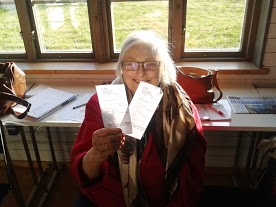PLACE: County of Uppland, Sweden
SITUATION: Despite best efforts, rural areas – even some close to large cities – are experiencing a decline in population, investment and or services. As unemployment is rising, and the production of services is moving away from the area, the ability of the area to handle challenges such as economic downturn, food shortages, freak climate, power failure etc. is decreasing.
When disaster strikes, the authorities and corporations cannot alone be relied upon, it is up to citizens to meet these challenges.
SECONDARY SITUATION: The above applies too, to the task forming the sustainable society. The challenges are similar but the time-frames differ. Firm public engagement, and collaboration between authorities and businesses is needed to meet the nation’s ambitious environmental goals.
FRAMING QUESTION: Are there tools available that can be used to encourage citizens to take part in developing the sustainable society, tools and approaches that can encourage them to contribute their time and skills to developing a local resilient capability? Is so, how can these tools be implemented? How can corporations and authorities be involved?
SOLUTION: Stephen Hinton joined ISSS and Open World Villages AB to study an informal complementary currency (Minutos) that originated in Germany. The inventor was inspired to create the currency based on his own observations of how his bees collaborated. The team adapted the currency to Swedish conditions and to cover voluntary personal activity as well as corporate CSR activities.
DETAILS:
The currency:
- Paper-based, self created time coupons that represent various denominations of minutes equivalent to volunteer time.
- Coupons are based on trust, and need to be endorsed by two other community members.
- Can be swapped as acknowledgement of time donated or donated directly to projects.
The Trials:
- Currency presented to several local Transition Towns action groups as well as general public
- Public workshop
- Follow up investigations and opinion surveys
RESULTS:
Money can release energy in the community
Potential volunteers found a lot of energy and enthusiasm when invited to advertise their skills and what they could offer. At the same time, when testing the idea with project organisers, they found much undiscovered potential in the local community. The investigation team realised that initiating a program of projects whilst connecting it to volunteering shows great potential. Should the projects include collaboration between local businesses and authorities it looks possible to use the currency as a framework to plan and execute projects, to engage local citizens and to encourage local collaboration with businesses, especially as part of municipal collaboration.
Read more on http://resilience.org.

No comments:
Post a Comment